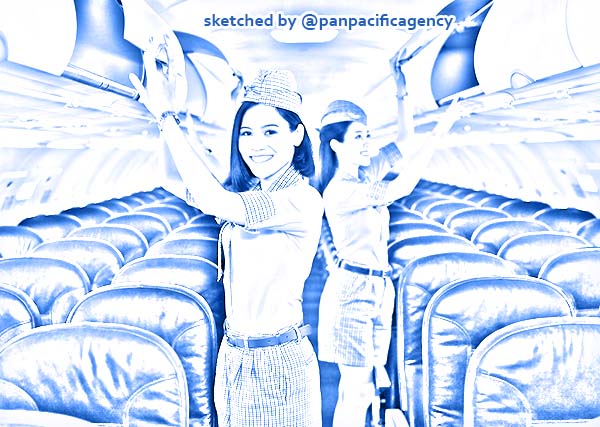Vietnam considers reopening of international flight routes

After taking place at the two biggest cities in Vietnam, Hanoi and Ho Chi Minh City, Vietjet's large-scale Cabin Crew Recruitment Day prepares to "land" in the capital of Japan - Tokyo. Photo: VietJet Air. Sketched by the Pan Pacific Agency.
HANOI, Jul 2, 2020, Vietnam News. Vietnam’s Ministry of Transport will consider the reopening of international flight routes to countries and territories which have no new cases of COVID-19 in the community for 30 consecutive days, according to a ministry official, The Philippine Daily Inquirer reported.
The official, who wanted to remain anonymous, told Vietnam News Agency that priority will be given to Japan, South Korea, China, Taiwan and some Southeast Asian countries which have controlled the disease.
“The COVID-19 pandemic is taking place in many countries around the world. Under the Government’s direction, the reopening of international flights needs to be considered carefully.”
The resumption of international flights is scheduled to begin at the end of July, according to a proposal from the Civil Aviation Authority of Vietnam (CAAV) sent to the ministry recently.
Prime Minister Nguyen Xuan Phuc has recently directed that the reopening of international flights will have to ensure safety for people because just a small mistake will mean social distancing measures have to be implemented again.
“The reopening aims to serve investors, technical staff and skilled workers in Viet Nam. It creates conditions for Vietnamese people living abroad to return home. However, all still have to follow strict control procedures to prevent the spread of the pandemic to the community,” the ministry official said.
“Vietnam Airlines has conducted one-way flights transporting Vietnamese people to South Korea for work and study, but it is difficult to restore all international routes.”
Head of CAAV Dinh Viet Thang said to maintain and ensure the feasibility of the reopening of international flights, it should not limit the number of passengers, including visitors, who will be required to follow safety rules.
He said transit passengers will not be allowed to enter Viet Nam. Passengers are required to have stayed in countries and territories for at least 30 consecutive days before flight and have negative coronavirus certificates issued three days before the scheduled flight date.
In addition, passengers must be tested at the arrival terminal in Viet Nam. Laboratory expenses are paid by the airline. Passengers must stay at locations determined by local People’s Committees in cities and provinces for 14 days, for which they have to pay a fee.
Thang said when countries consider how to restart international travel amid the COVID-19 pandemic, the concept of a “travel bubble”, which is an ‘intra-zone movement or moving corridor’, is becoming more attractive.
The travel bubble includes two or more countries successfully restraining COVID-19 to create a moving bloc or corridor. People living in the bloc can travel freely by road, sea and air transport, avoiding mandatory quarantine requirements.
Thang said Estonia, Latvia and Lithuania have opened their borders to the Baltic bloc, creating opportunities for businesses to reopen trade, meanwhile visitors from outside the bloc are still required to isolate themselves for 14 days.
Australia and New Zealand have also proposed a Trans-Tasman bubble, in which citizens of one country can work in the other without a visa. Meanwhile, China is considering expanding its “intra-regional movement” over mainland China to Taiwan, Hong Kong and Macau and South Korea.